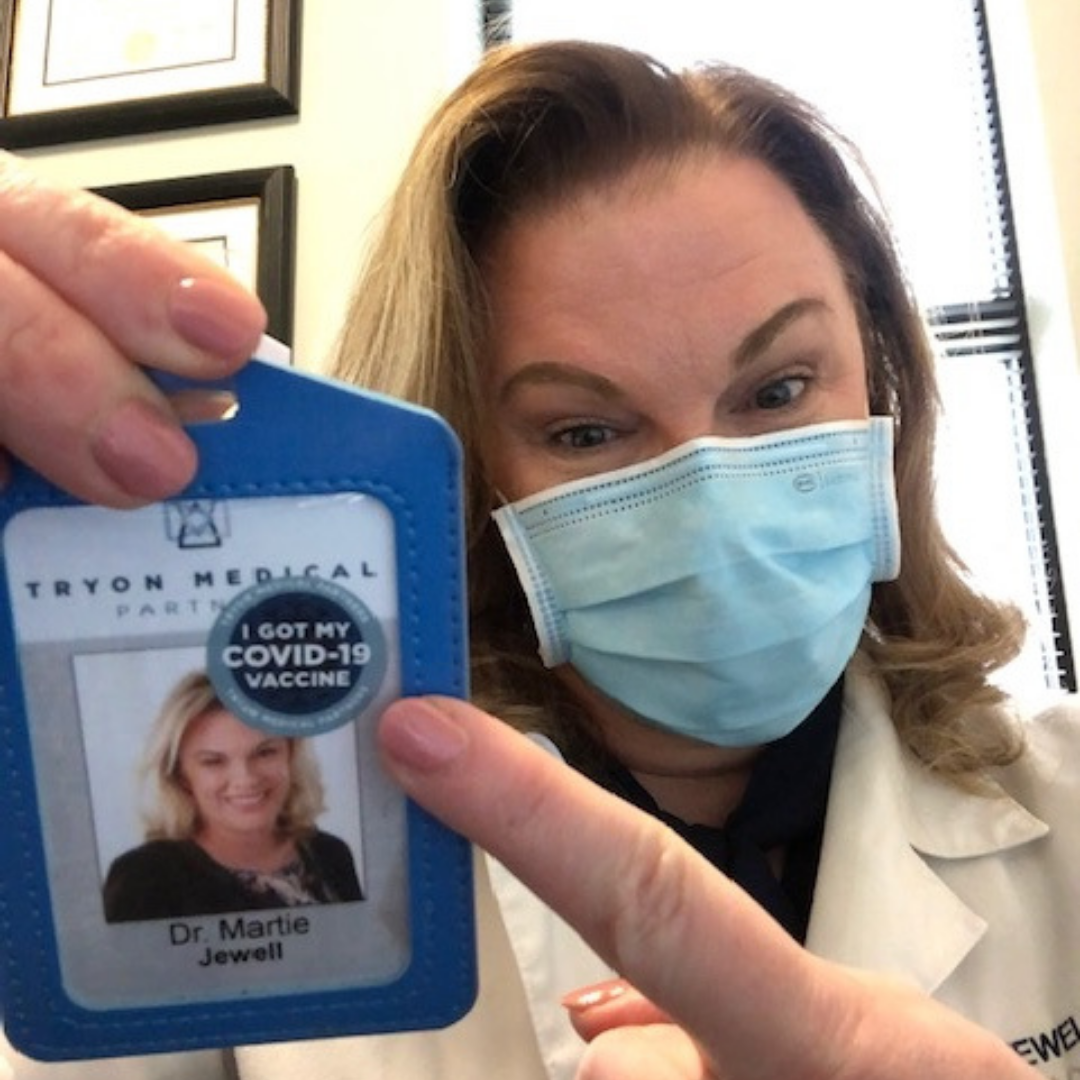
Holding a completed COVID-19 vaccine card can feel like quite an accomplishment. After weathering a difficult pandemic, being vaccinated is worthy of a moment of celebration, hope and positivity. Still, there are a few things to consider alongside having your trusty vaccination card.
To learn what COVID-19 safety looks like after you’ve had the vaccination, we asked Tryon Medical Partners what recommendations they’re making to patients. Through their doctors’ experience in national COVID-19 research trials and opening local testing clinics, they’ve compiled these six “dos” and “don’ts” for preventing the spread of the virus even after you’ve been vaccinated.
1. DO Get Your Second Dose
Clinical trials for the Moderna and Pfizer-BioNTech vaccines have proven their effectiveness. But it takes both shots to reach the 94-95% level of protection they offer. The time between your doses depends on which vaccine you received (three weeks after the first shot for Pfizer and four weeks for Moderna). Your body will also need time after the second dose – about two weeks – to build up to full protection, just like it would after any vaccine.
2. DON’T Throw Out Those Face Masks
We’ve spent the entire pandemic focused on the key things we can do to prevent the spread of COVID-19: wear a mask, practice social distancing and wash your hands. The vaccine is another form of protection from the virus, but it doesn’t mean it’s time to give up on these safety precauctions entirely.
The COVID-19 vaccine does a phenomenal job keeping us from getting the coronavirus, and if we were to contract it, lowers our risk of getting severely sick and dying. What isn’t currently quite as clear is how long the vaccines will be effective, how they protect those with weakened immune systems and how effective they are against variants.
3. DON’T Be a Typhoid Mary
We’ve heard a lot over the past year about the 1918 Spanish flu pandemic, but flip the pages of your history book back a bit further to 1907 for another cautionary tale. Typhoid Mary isn’t just a metaphor for contagion. She was a real person, Mary Mallon, who, despite having no symptoms, spread typhoid fever to those around her.
Asymptomatic spread has been an issue throughout the pandemic and will continue to be. Even if you are vaccinated, you can still pose a risk to people around you. Though you may not show signs of being infected, you can be contagious and especially dangerous to those who have not yet been vaccinated. .
4. DO Continue Opting for Outside
When seeing loved ones or dining out, continue to choose outdoor options to keep your activities as safe as possible for everyone involved. If everyone in your party is vaccinated, the risk for catching COVID-19 is reduced. But it is important to avoid activities that could make you susceptible to getting the virus and spreading it to others, especially those at higher risk due to health issues or the fact they have not yet been vaccinated themselves.
5. DON’T Ignore New Research About Variants and Boosters
It is expected that any virus will mutate. This is typical virus behavior, so seeing variants of COVID-19 already present isn’t a surprise, and new ones will continue to make themselves known. There is not yet enough information to know how long immunity offered by the current vaccines will protect us.
It took clinical research to get us here, like the studies Tryon brought to Charlotte that resulted in the highly effective vaccines being given today. It will take more research to know if we may eventually need boosters.
6. DO Make Appointments for Your Ongoing Health Needs
During the pandemic, Tryon physicians have seen patients avoid making appointments for fear of COVID-19. Tryon’s offices have been optimized for patient safety, including health screenings, mask policies and keeping COVID-19 testing at off-site clinics. Additionally, seeing your primary care provider for your annual wellness exams and continuing with your ongoing medical care are the things that keep you healthy. If you’ve been putting off your next appointment, don’t hesitate to make it today!
Maintaining a relationship with your doctor means you have a trusted resource to turn to when questions arise. Beyond the vaccine in your arm, you can also rely on your trusted physician to arm you with everything you need to stay well in changing times.
